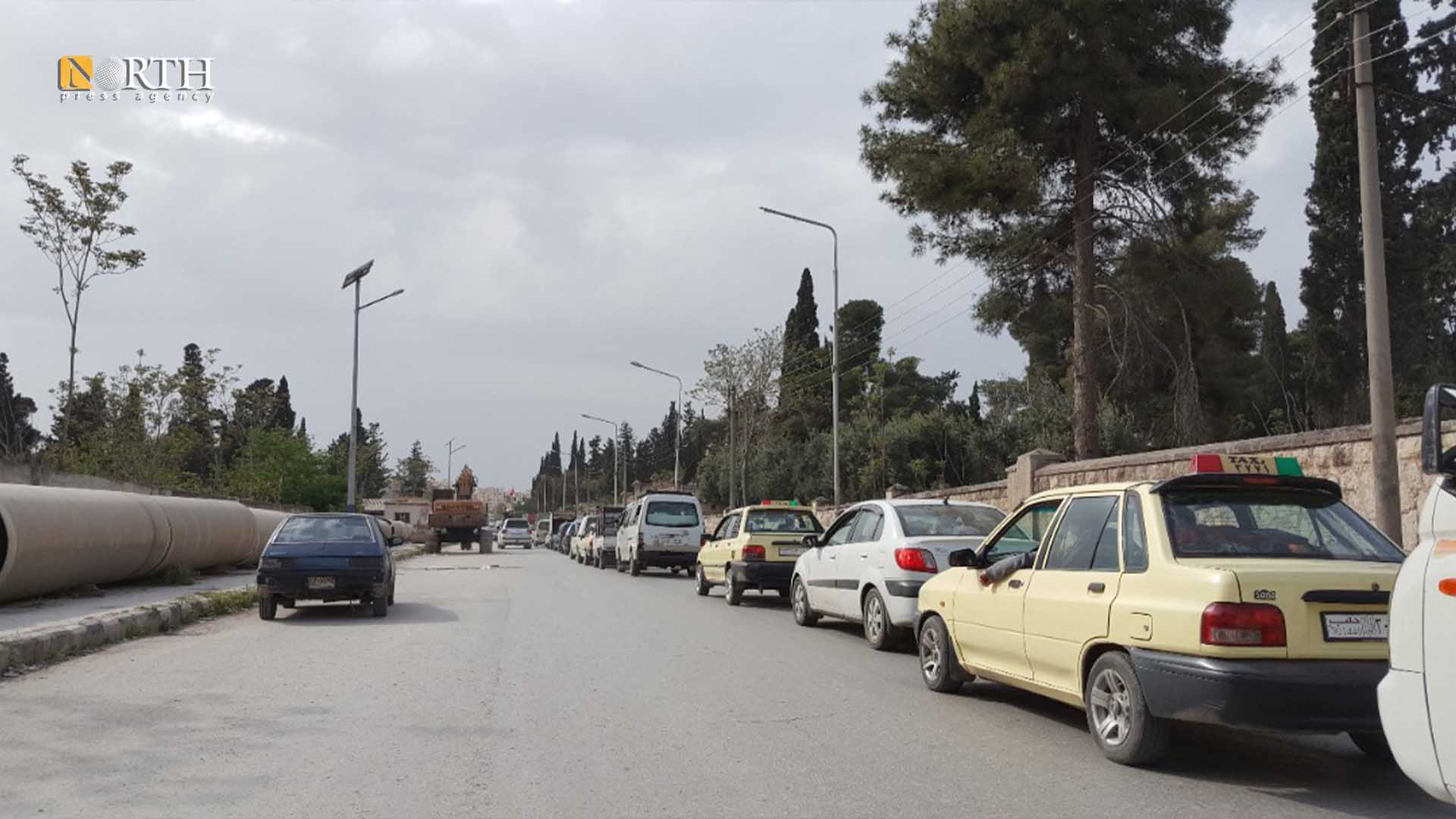ALEPPO, Syria (North Press) – Abdullah Abdo (a pseudonym), a clothing shop owner in al-Furqan neighborhood in Syria’s Aleppo, is subjected to strict inspection by Syrian government checkpoints when passing to and from the neighborhood, with the soldiers hoping that they find a large amount of money to justify his arrest and confiscation of his funds.
Meanwhile, government checkpoints on the outskirts of the western and eastern Sheikh Meqsoud and Ashrafiyeh neighborhoods exploit residents by gaining money unjustly, according to residents of Aleppo.
Those travelling to these neighborhoods, which are run by a civil administration affiliated with the Autonomous Administration in North and East Syria (AANES), from government-held areas have to pass through three government checkpoints.
The Sheikh Meqsoud and Ashrafiyeh neighborhoods have been run by the civil administration according to an institutional system, separate from that of the Syrian government, since April of 2019.
Excessive inspection
Abdo told North Press that since members of the checkpoint know the nature of his work, they subject him to excessive inspection, hoping to find more than 1,000,000 Syrian pounds (SYP) in order to arrest him and confiscate the money.
Since Abdo has clothing shops and is a clothing distributor, he is forced to carry more than 1,000,000 SYP when buying clothes.
In July 2020, the Combating Money Laundering and Terrorism Financing Commission released a circular (780/18 p.) to all financial institutions operating in Syrian government-held areas in order to ban travel between governorates for people holding more than 5,000,000 SYP.
The circular was issued to ban money transfer among Syrian governorates, “but government checkpoints deal with the Sheikh Meqsoud and Ashrafiyeh neighborhoods as if they were an independent governorate separate from Aleppo, in addition to decreasing the set amount to less than 1,000,000 SYP.”
In order not to be arrested according to the decision that Abdu considers “deception,” he resorts to his workers, giving them less than 800,000 SYP in order to transfer the money to Sheikh Meqsoud and Ashrafiyeh, which are the center for sewing workshops in Aleppo.
“No government decision bans transferring more than 1,000,000 SYP within one governorate, but government checkpoints either arrest those who have this amount and confiscate it or take the money in exchange for releasing them,” he said.
Since Abdo is forced to buy clothes from Sheikh Meqsoud and Ashrafiyeh, especially with the onset of Eid al-Fitr and summer, he wonders how he can continue his work.
False pretenses
“Checkpoints are exploiting residents in a way they consider legal,” Najdat al-Shami (a pseudonym), a second-hand clothing and antiques store owner in al-Jamelaiah neighborhood, said.
“They took 1,000,000 SYP in order for them to not arrest me under the pretext of holding more than the allowed amount; otherwise, I would have been transferred to the branch and then to the judiciary,” al-Shami added.
Traders who hold a commercial or industrial license are allowed to carry 2,000,000 SYP without being held liable by security checkpoints.
“Those, who are arrested for holding more than 1,000,000 SYP are transferred to the branch that arrested them and remain there for 15 days before they are presented to the investigator,” a security source, who preferred to be unnamed, remarked.
During the investigation, they ask the detainee about his place of residency during the war, his relatives’ emigration, monthly income, source of remittances that he receives, and jobs he practices, according to the source.
However, they mainly concentrate in their questioning on the source of remittances, whether they come from terrorism funders, a suspicious source, from abroad, or if they receive the money through exchange offices in Sheikh Meqsoud and Ashrafiyeh.
Finally, the investigation ends and the arrestee is transferred to Public Prosecution, accompanied by the investigation papers and the confessions he made, at which point he will be presented to the economic court in case the charges are proven against him.
“Those who carry a large amount of money, are charged with either having anonymous funds via unofficial exchange offices, or sometimes funding terrorism,” the security source elaborated.

